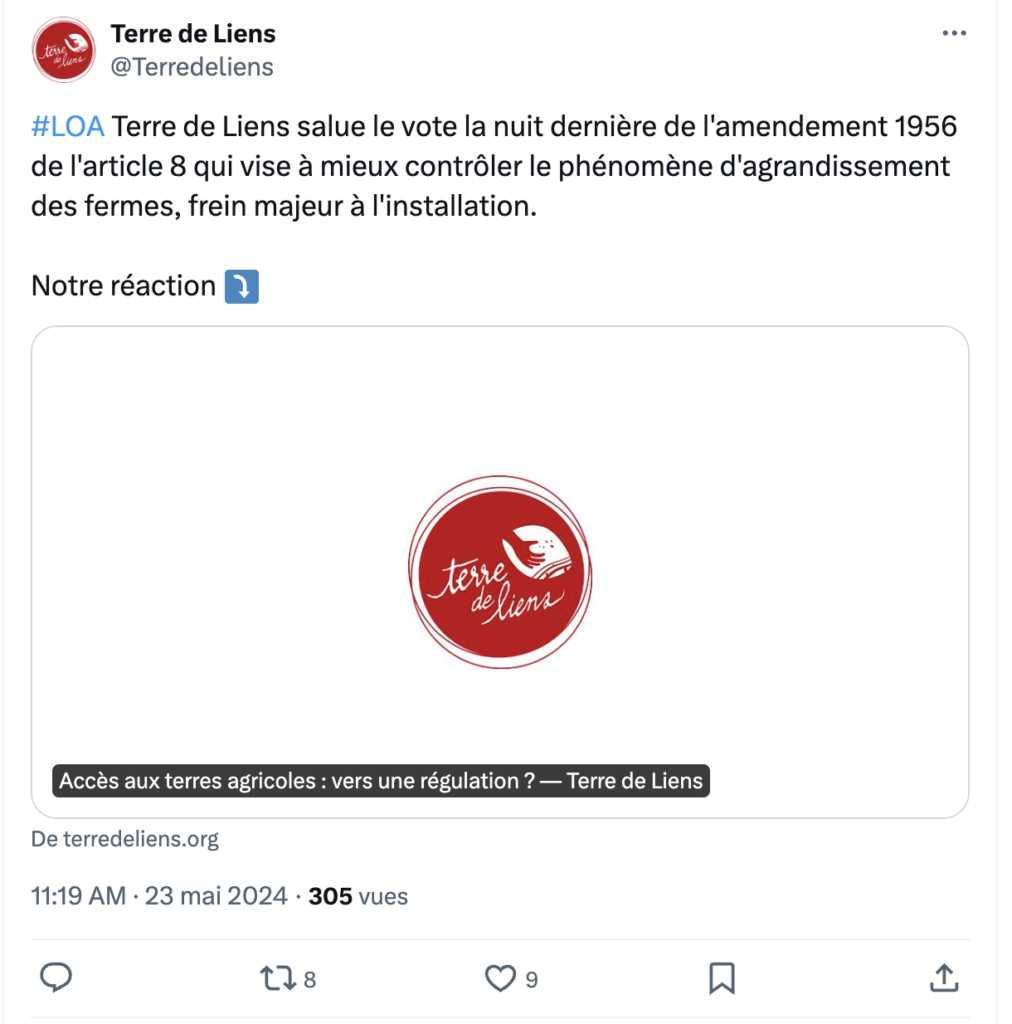Sommaire
Farm bill: which lobbies are winning out and what is the winning strategy?
It's time to take stock of how lobbies influence legislation, and the recent review of the farm bill is a striking example. Despite lengthy debates and numerous amendments (10,072 amendments), the National Assembly adopted this bill with a fair number of lobbies highlighting ambitions deemed weak and controversial compromises. Criticism came from all sides, particularly from the left, which denounced the significant environmental setbacks. Let's take a look at how these influences are manifesting themselves and their implications for future legislation.

The summary
In the absence of a strategy, context is more important than anything else.
- Lobbying experience and clout. The FNSEA has taken full advantage of the current momentum. In a political climate marked by the farmers' crisis, the FNSEA had a real impact on the public authorities right from the text. However, it should be pointed out that its communication was just as poor (very old school) as that of its opponents, and that its victories had little to do with amendments. A sign that the "zeitgeist" is still very important in the creation of legislation.
- The strategy adopted by the young farmers is very interesting, as they have had both the ECOLO and Liot amendments accepted, which is a sign of their influence. On the other hand, the Nourrir collective had an easy lobbying strategy, with many amendments passed by the LFI/ECOLO opposition. This creates numbers but no results. An "automatic pilot" strategy, if you can call it that.
- One sure sign is that when we appear to be better informed via the articles after the law has been passed than before, this is generally proof that the lobbies have had the practices of dinosaurs: shaky communication, no (or poor) social networks, no tagging, lobbying towards powerless allies, and no agenda setting. There is still one round to go for the environment, which will have been too confident that everything was going to go quickly and smoothly.
Without a strategy, we fall back on commonplaces
- Amendments made by the government and the rapporteurs are more likely to pass.
- The main amendments passed were group amendments without a coalition.
- LIOT and LR remain key players in the strategy today.
It should be noted that the analysis was carried out without the analysis of duplicates or similar amendments; this analysis will come with the Senate amendments!
In the Assembly data, I came across Captain Obvious
The Farm Bill has just completed its first passage through the National Assembly. The LR group has been very active. (Oh dear, for agriculture)

As a result, we're going to fall back on "Captain Obvious" statistics, where it's better to have an amendment made by :
- The government (100%!)
- The rapporteurs
- The opposition has passed very few amendments.

Now that's brilliant! We've just doubled the number of Follaw registrations with this data that confirms what anyone in public affairs knows.
Let's move on to the lobbies: we've already got more interesting information
In a previous analysis, we isolated duplicate amendments or amendments from lobbies for which we drew up a number of key strategies to isolate them. We therefore succeeded in creating an "amendments and lobbies" filter on Follaw. Firstly, and independently of the analysis with duplicates where amendments may have passed without being announced as such, only 9 amendments passed:

Many lobbies have a success rate of 0% (apart from lobbies, where, once again, you can have a duplicate amendment that has not been announced as coming from a lobby).

It should be noted that the "Installons des paysans" collective is the confédération paysanne (and the confédération paysanne had 0% of those announced as such, excluding duplicates), that the Jeunes agriculteurs (Young Farmers) had a very good conversion rate and that agroforestry had a very good conversion rate. The big loser was the Nourrir collective, with no fewer than 39 amendments announced (and many more with the duplicates not announced as such), and for good reason: they only went to the NUPES/ECOLO spheres in scattered order. This dispersed order is reflected in the data, with mentions of just 2 members, then just one, etc.
All have multiple co-signatories. There are 7 group amendments (RE/ Ecolo / LioT / LFI NUPES) and 2 from the Hor / Liot coalitions (on young farmers).
On social networks, only reactive and no influence
As far as the law is concerned, we note that we only comment on the law upstream and downstream. Influence strategy? None
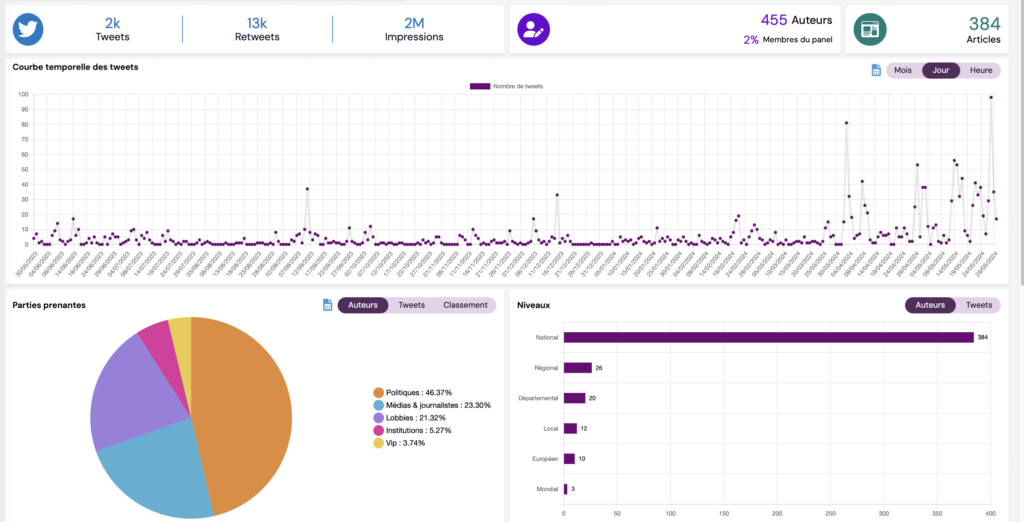
Let's look at one of the players who reacted afterwards, the Nourrir Collective. It only emerged in reaction to the law. The "Collectif Nourrir" had not done any upstream work beforehand:
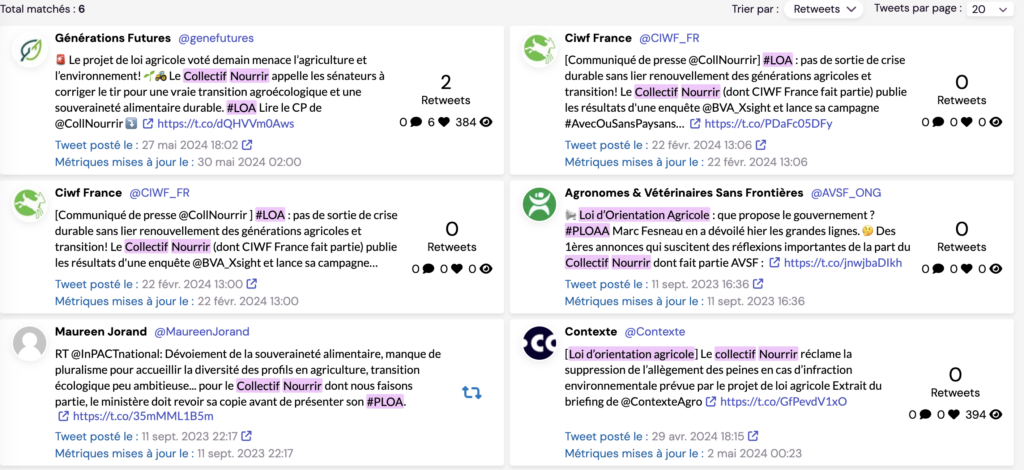
That said, the collective also had members
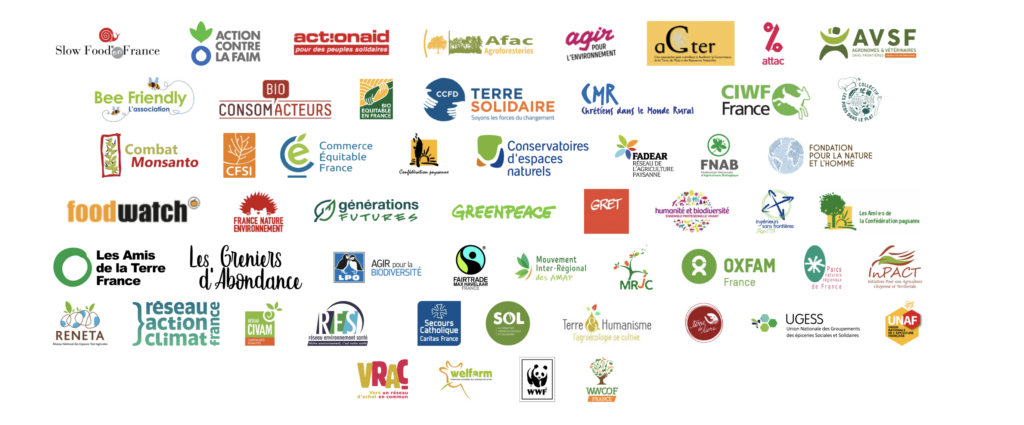
And individually, they tried to speak up beforehand:

But it remains low. Another example from Terre de Liens:
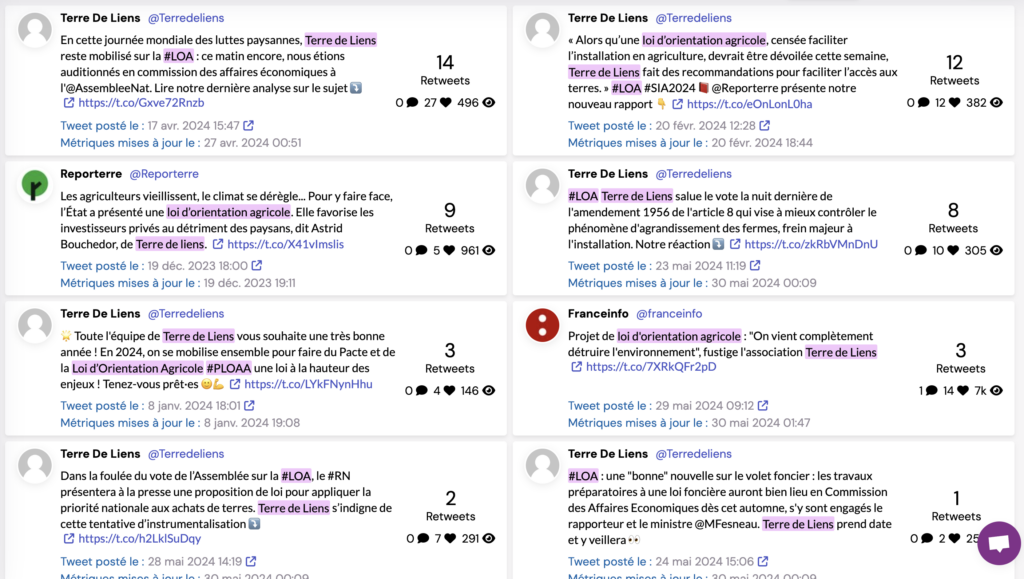
No tag, technical vocabulary, a CP link, low visibility for these reasons, it doesn't have the slightest impact: (305 views with 8 retweets)
